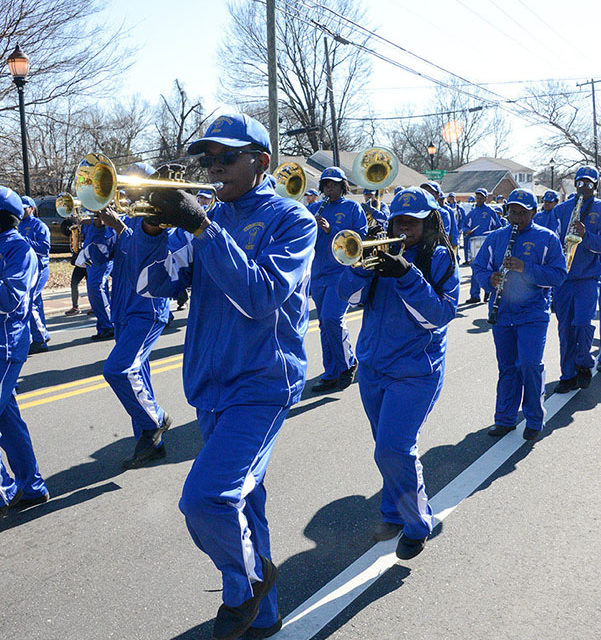A lot of people know the story of Martin Luther King Jr. but they might not know the story of the City of Greensboro’s Martin Luther King Jr. Day Parade that will take place at 11 a.m. on Monday, Jan. 21.
The fact that there’s a street named after King in Greensboro and an annual parade down that street is largely due to the efforts of one man – Guilford County Commissioner Skip Alston, who spoke this week about some of his memories from that effort to establish the parade.
One interesting thing, Alston said, is that he never dreamed there would be a second Martin Luther King Jr. Day Parade – much less 29 more after the first one in 1990.
According to Alston, that first parade was held simply to celebrate the city’s 1989 name change of Asheboro Street to Martin Luther King Jr. Dr.
Alston said he was at a street naming celebration for King in Atlanta in 1988 and many people there left the event saying they were going to try to get streets in their cities named after King. Alston said he left Atlanta feeling highly motivated to get a street in Greensboro named after King.
He said he went before the Greensboro Planning Board with the proposal.
“I got voted down 8-to-1,” he said.
He added that, remarkably, even the head of the Greensboro chapter of the NAACP voted against the change. Alston said the Planning Board member had run against him and beat him a year earlier to become the head of the Greensboro NACCP. According to Alston, that may have been the reason for the no vote.
“Then I approached the City Council and they said get a petition,” Alston said. “I walked the street myself.”
He said one moment in that process moved him a great deal. He knocked on the door of a black woman in her 80’s who told him, “I’ll sign your petition – but those white people are never going to name the street after a black man.”
Alston said he promised her that, if she signed the petition, he would do everything in his power to see that the street was renamed.
He said it might have been easy to do if he had selected a minor street, but he wanted a long street connected to highways so there would be signs that say. “Martin Luther King Jr. Drive Exit.”
Another appealing aspect of Asheboro Street was that it had a prominent history: In 1890s through the 1920s, some of the Greensboro’s wealthiest citizens lived in large houses on the street.
According to Alston, he wanted it to be called Martin Luther King Jr. Boulevard but one City Council member said he was concerned that “Boulevard” made it sound like it was a wide street with many lanes.
“He said this was more of a ‘Drive,’” Alston said of that City Council member.
Alston said he told the City Council that if it had the name Marin Luther King Jr. he didn’t care whether it was a Boulevard, a Drive or anything else they wanted.
He said he remembers the first parade very well: It was a beautiful day with unseasonably warm weather and 30,000 people came out.
After that, Alston said, everyone began excitingly asking him about the next parade, but he did a double take and thought, “Nextparade?”
He said it was a tremendous amount of work to organize the first one so he had no interest in doing another but everyone came together and the parade has been going on ever since.
“We thought it was going to be a one-time event in 1990, but now it’s 30 years we’ve been doing this – and it’s getting bigger and bigger and better.”
In 1990, Alston also organized a Sunday afternoon gospel celebration that takes place each year on the day before the parade. That event, like the parade, continues to go strong after three decades.


Good for Skip Alston and all his work. I’m not black, but I can understand, perhaps, some of the inequities that blacks endured in the 50’s and 60’s (before my time). It doesn’t make government institutionalised racism against whites right (MWBE, AA), but it makes it understandable, at least.
Can we at least agree that it’s time for a level playing field? No racial discrimination?
Perhaps it’s time that we all be judged by the content of our character, not the color of our skin.